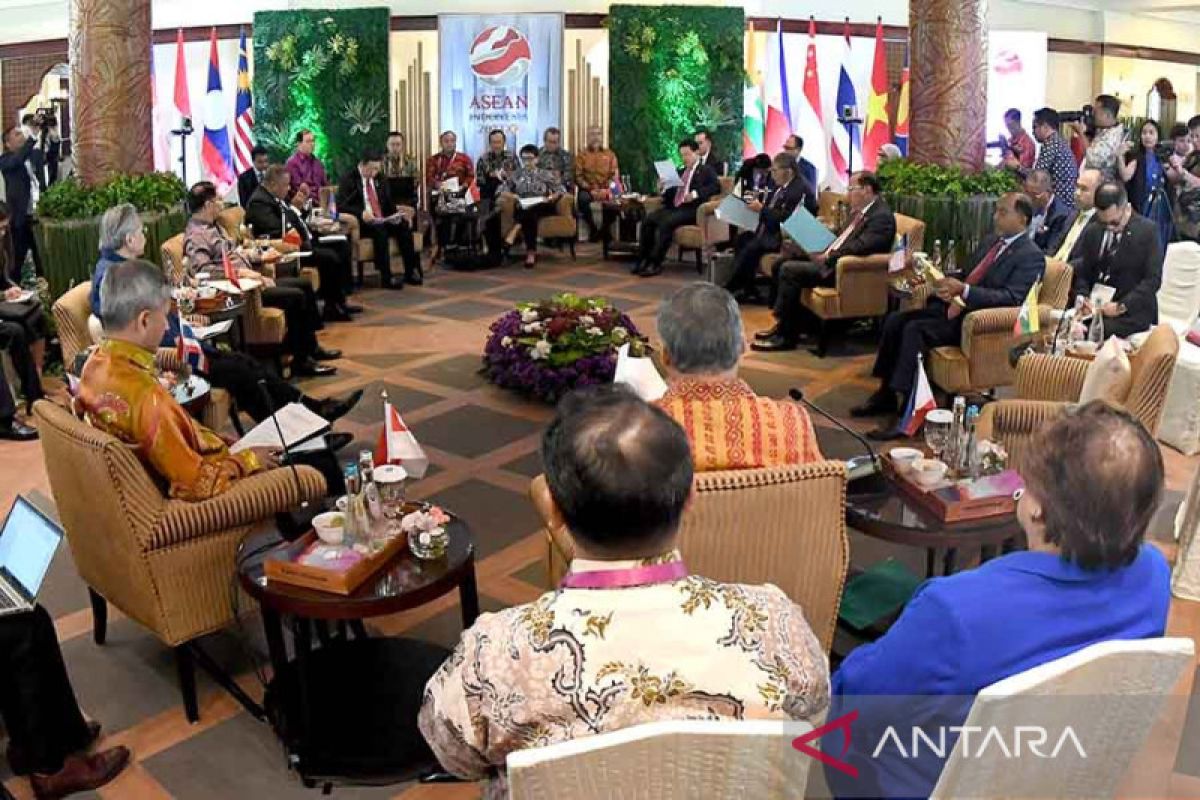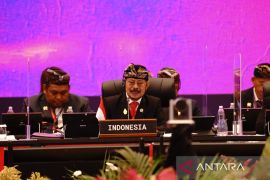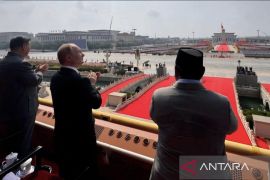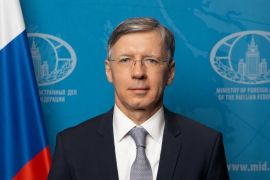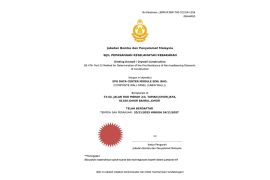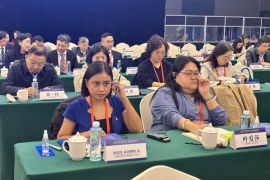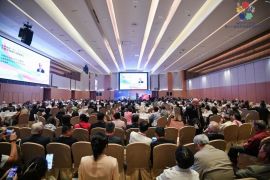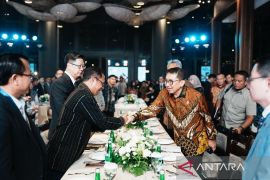While delivering her opening remarks at Tuesday's plenary session, Indonesian Foreign Minister Retno Marsudi emphasized the importance of ASEAN's credibility.
"This means consistent implementation of the ASEAN Charter, including in decision-making processes in emergency situations," she explained.
Marsudi highlighted that with unity, ASEAN can address current challenges and anticipate and respond to future challenges.
She further stressed the need for ASEAN to navigate regional dynamics effectively.
"We need to send a clear message that ASEAN will never be a proxy in great powers' rivalry," she emphasized, adding that the Treaty of Amity and Cooperation in Southeast Asia (TAC) must be respected by all member countries.
Additionally, the minister emphasized the importance of expanding inclusive engagement with other regions, including the Pacific Islands Forum and the Indian Ocean Rim Association.
"Furthermore, we need to move beyond confidence-building measures and take bold steps to deter potential conflicts and actively promote peace through preventive diplomacy," the minister said.
After the session, Marsudi noted that an increasing number of countries have shown interest in signing the TAC.
She expressed hope that the accession to the TAC will not remain only on paper but will be implemented effectively.
The TAC, established in 1976, aims to create political stability and security in Southeast Asia by regulating the peaceful resolution of conflicts between countries.
During the plenary session, Serbia's application for TAC accession was approved, and ASEAN appointed its secretariat to review Algeria's application.
arsudi stated that Indonesia will make efforts for Panama, Spain, and Mexico to accede to the TAC on the sidelines of the 43rd ASEAN Summit in September.
On Wednesday, Saudi Arabia became the 51st country to sign the treaty.
The Instrument of Accession to the TAC was signed by Saudi Arabia's Foreign Affairs Minister, Faisal bin Farhan Al-Saud, on the sidelines of the 56th AMM.
Marsudi, in her remarks at the signing event, said that Saudi Arabia's signing of the TAC reflects the country's commitment to upholding ASEAN values and principles, including cooperation, consistent adherence to international law, and contribution to peace and stability in Southeast Asia and beyond.
During the retreat session of the 56th AMM in Jakarta on Wednesday, Marsudi emphasized the continued importance of the five-point consensus (5PC) as the main reference for ASEAN in addressing the Myanmar crisis.
"The 5PC is the main reference, and the implementation of the 5PC should remain the focus of ASEAN," she said in her opening remarks.
The 5PC calls for an immediate end to violence, dialogue among all parties concerned, the appointment of a special envoy for mediation, provision of humanitarian assistance, and arranging a visit by the ASEAN special envoy to Myanmar to meet the parties involved.
She underlined that ASEAN leaders stated in Phnom Penh that any other efforts to resolve the Myanmar crisis must support the implementation of the 5PC.
As the ASEAN chair this year, Indonesia has conducted over 110 intensive engagements with stakeholders in Myanmar thus far.
"This is a very complex exercise, and it is not easy at all," Marsudi acknowledged.
She stressed the importance of encouraging dialogue with parties in Myanmar as it paves the way for a political solution.
"Only a political solution will lead to lasting peace," she explained.
During the event, Marsudi also expressed concern about the ongoing and increasing violence in Myanmar.
Indonesia has been urging all stakeholders to denounce violence, as it is considered key to building trust, delivering humanitarian assistance, and facilitating dialogue.
Marsudi confirmed that progress has been made in the delivery of humanitarian assistance.
She expressed hope that the ASEAN Coordinating Centre for Humanitarian Assistance on Disaster Management (AHA Centre) would have further access to people in need, including in the Magway and Sagaing regions.
Furthermore, the minister emphasized that ASEAN must retain control in responding to current and future geopolitical challenges, including through the East Asia Summit (EAS) and the ASEAN Regional Forum (ARF).
"ASEAN believes in inclusivity, ASEAN believes in dialogue, and ASEAN believes in win-win collaboration," Marsudi remarked.
The series of AMM events are taking place in Jakarta from July 10 to 14.
Almost all ASEAN member countries and Timor-Leste have participated in the AMM. Representatives from Myanmar, which has not resolved its political crisis, have not attended the ASEAN meeting.
The events include several meetings, such as the Southeast Asia Nuclear Weapon-Free Zone (SEANWFZ) commission meeting, a meeting with the ASEAN Intergovernmental Commission on Human Rights (AICHR), the AMM plenary session, and the retreat session.
Additionally, the agenda includes ASEAN foreign ministers' meetings with dialogue partners, namely India, New Zealand, Russia, Australia, China, Japan, South Korea, the European Union, the United Kingdom, Canada, and the United States.
The ASEAN Plus Three (APT) Foreign Ministers' Meeting, the East Asia Summit (EAS) Foreign Ministers' Meeting, and the ASEAN Regional Forum (ARF) are also part of the agenda.
As the ASEAN chair this year, Indonesia has chosen the theme "ASEAN Matters: Epicenter of Growth," reflecting its focus on strengthening ASEAN's relevance in responding to regional and global challenges and building ASEAN's position as a center of economic growth in the region.
Related news: ASEAN must remain central in facing geopolitical challenges: FM
Related news: Myanmar issue dominates ASEAN foreign ministers' meeting: Marsudi
Editor: Anton Santoso
Copyright © ANTARA 2023
